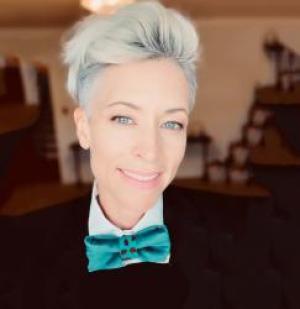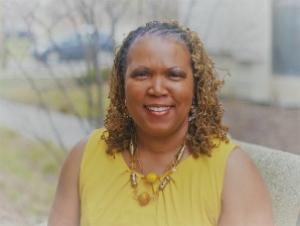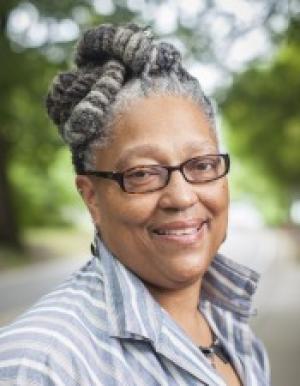Resources

When the mundane becomes formidable, it signals lack of access.[1] For a trans person, it is precisely the perfunctory mechanics of the classroom that frustrate teaching and learning. This begins with introductions. The trans professor and student immediately must negotiate whether to share their name in class. Is it safe to share that information at the outset, or do we need time to build trust? Are intake forms and classroom norms enough of a safeguard? Toilets pose another pragmatic concern. Trans teachers and students might feel pressure to map out gender-neutral or single-stall restrooms prior to class to avoid quizzical glances or worse. Depending upon the campus, these facilities might be few and far between, meaning a menstruating trans man might have to leave class for an extended period of time in order to refresh his sanitary products. Instructors and students might be caught off guard by blatant transphobia. It arises in verbal comments, required readings, and even student papers. Syllabus policies for the prevention of misgendering classroom participants and authors of required readings is a good starting place, but it is clear that much more is needed. What trans-informed changes to institutional email addresses, for example, prevent the use of deadnames? [2] All of these examples are especially charged when linked to religion. The landscape is brutal: “2023 marks the fourth consecutive record-breaking year for total number of anti-trans bills considered in the U.S.”[3] Student-athletes face discrimination inside and beyond locker rooms while faculty seek equal access to restrooms and parental leave. Educators are wondering how to respond ethically. But beware. The instrumentalization of trans embodiment as a wedge issue within political discourse, especially as linked to religion, further disenfranchises trans persons. We learned this lesson in the 1970’s when abortion was similarly leveraged as a smokescreen for racially segregating schools, subsequently polarizing American politics.[4] Anti-trans bills likewise pit one person against another, supposedly in the name of God. To focus on the bills is to walk into a carefully set trap, allowing embodiment to be confused with essentializing materiality and reduced to identity politics. We need to reorient the representation of trans persons beyond trans issues, in part by using resources such as the Trans Journalistic Association style guide.[5] Whatever the subject of the course, contemplating trans perspectives and reading trans scholarship is valuable. Be it ecology, the prison industrial complex, or housing access, trans persons have insightful contributions—to the study and practice of religion as much as medicine and economics. Importantly, the onus cannot fall squarely on the instructor, especially when the instructor is trans. Many of the obstacles we face are due to the built environment, which is beyond our control. I would like to invite readers to consider what collective action might entail. Here I propose personal and political ethical action that neither falls prey to strategic discourses of entrapment nor neglects the practicality of embodied teaching. My shorthand for this recommendation is compassionate curiosity. In place of hypothetical scenarios, like the trolley problem or lifeboat scenario that frequent ethical inquiry, compassionate curiosity bonds classroom communities through deep soul work intended for societal transformation.[6] Compassionate curiosity solicits us to communicate with one another and discern what is most pressing within the particularities of our contexts. There is no individual or action that can bear the weight of transphobia. We need one another. With students and colleagues, practice compassionate curiosity by considering: Are there trans leaders on campus and in course material? What policy changes on and off campus would be worth prioritizing? How can we establish trans mentoring networks in religious education? Let’s ask students what changes they would like to see on campus and how they might initiate those. Explore what is important to each particular classroom of students and also share the needs of instructors. If the challenges that we face are systemic, our responsibility is not for individuals to hustle harder. Improving the classroom environment requires collaboration. Practicing compassionate curiosity in community equips us for personal and political ethical action. From compassionate curiosity we learn to recognize that when the mundane becomes formidable, we are not alone; there are choruses of folks suffering particular inequity, and together we all benefit from advocating for institutional change. [1] Access and inclusion are initial concerns, but equity is what many of us seek. [2] Hopefully these examples also resonate with people who lactate and require places to pump, fat folks in search of adequate classroom seating, BIPOC facing microaggressions in addition to overt racism, unaccommodated disabled persons, and many more. [3] https://translegislation.com/learn [4] Dorothy Roberts, Killing the Black Body: Race, Reproduction, and the Meaning of Liberty, (New York: Vintage Books, 1997); Radical Reproductive Justice: Foundation, Theory, Practice, Critique, eds. Loretta Ross, Lynn Roberts, et. al, (New York: The Feminist Press at CUNY, 2017); Mihee Kim-Kort, “Racialization Meets Purity Culture: Abortion and the Criminalization Cases Confirm That it’s About Controlling Women’s Bodies and the ‘Ideal’ American Family,” Religion Dispatches, June 29, 2022; Sue Halpern, “How Republicans Became Anti-Choice,” The New York Review, November 8, 2018; Randall Balmer, “The Real Origins of the Religious Right,” Politico Magazine, May 27, 2014. [5] https://transjournalists.org/style-guide/ [6] For more on ethical curiosity see Perry Zurn’s Curiosity and Power: The Politics of Inquiry, (Minneapolis: University of Minnesota Press, 2021). Concerning terms of engagement, see Marshall B. Rosenberg’s Nonviolent Communication: A Language of Life, (Encinitas: PuddleDancer Press, 2015).
Dr. Eric D. Barreto is the Frederick and Margaret L. Weyerhaeuser Associate Professor of New Testament at Princeton Theological Seminary. In this Silhouette Interview he discusses the childhood desire for a life with words, the influence of high school teachers, the faith required of the teaching life, the power of community in the work, and the miracle of playing a part in bringing about God's justice.

Besides screaming “Don’t do it!” or “Why in the (bleep) would you want to do that?” there are any number of tidbits people just don’t offer when it comes to moving from the classroom to administration. With any number of references to “going to the dark side” (of note: I take issue with any metaphorical use of “darkness” or “blackness” as pejorative), seldom does a professor stepping into administrative waters receive much of a verbal life jacket. After five years as Vice President of Academic Affairs/Academic Dean, I have decided to return to the classroom and “fully” dwell as a Full Professor of New Testament and Culture. After a handful of years and a pandemic, it is time. Yet, as I reflect on this transition, I want to share some tools, tidbits, and techniques that I discovered behind the dean’s desk. Perhaps these thoughts and (in some cases) lessons will prove beneficial to anyone considering an administrative role. I hope my meditations won’t deter any inclinations or cause too much fear and trepidation. Here are my ruminations: As dean there will be deluge of email. Some of the communication is important. Yes, you need to know if a professor can’t teach a class or if the registrar is out sick. You will be added to listserves simply based on your signature. Some of the notices give pause; others are quite questionable. Is it important that the dean provide input on the new hand sanitizer or toilet tissue distributer? You will need to (re)define classroom activity. The student-class engagement decreases. My first year as dean I did not teach so I could get acclimated to the shift in responsibility and learn the numerous accountability layers. As an administrator you will quickly discover that the Boardroom is now your classroom. The Leadership Team meeting is the lecture hall. Staff meetings are, yes, pedagogical sessions. There is the danger of demonizing students. The year of non-teaching was helpful in getting my sea legs under me. However, I soon began to see our wonderful students as plagiarizing pirates, hell-bent on circumventing class portals and graduation paths. Primary interactions with students were pejorative and positioned as “coming to the principal’s office.” Well, I was happy to return to teaching at least one class a term because our students deserved a better view from me. I knew they honored the institution by their enrollment. They were not the imps the “daunting dean” occasions always warranted. Yet, the nature of “go see or email the dean” was the bowl for such unfavorable engagement. On some days administrative work is purely gratifying. A letter of reference for a hardworking student or an on-the-rise staff member is food for the soul. Student award ceremonies give so much ebullience. Faculty promotions and publications are the stuff of good wine. Commencement is just filled with joy and jubilation. People don’t stay in administration long. I really didn’t know that, and yet it is very true. Administration is both arduous and awesome. However, some days I felt awful about what happened in a faculty meeting or with a staff member. Select meetings and email exchanges with students grieve me to this day. By the way, did I mention the excessive emails? Toilet tissue? Hand sanitizer? In the end: Do You! I had to learn to take care of myself, especially when the doctor told me my blood pressure was high. What the hell! There was so much I had internalized without realizing it. I thought my daily exercise regimen and morning devotion were enough. All of my efforts were off-balance and insufficient. I was taking in more than I was releasing. If the body keeps the score, my body was winning (the game of stress and anxiety) while my head and heart were losing mercilessly. I had to recall what my Granny said: “When you die, the church will roll on.” Institutions will say kind things to get you on board. Maybe a few folk will show up at your funeral, but in the end the train will keep rolling. And soon after your burial, a new dean will be sitting behind that desk or in that virtual space. At first I saw in a glass dimly, now I see clearly. You don’t have to tell me twice. Now that I know better, I owe it to myself and my sons to do better. In my five years as dean it was teaching students that really brought me back to my center. The one class a term reminded me of my vocational core. It was the mac to my cheese, the shrimp to my grits—I could go on. I dare not say I am done with administration nor that this work is not a part of my career calling. Ann Garrido’s work on the spiritual nature of administration proved quite helpful. I am finished, but not done. Nonetheless, there was—there is—something about preparing a syllabus, researching articles, planning course sessions, and inviting colleagues to share in my classroom via Zoom that gives me pedagogical pleasure. I need administrative work to stretch my manifold gifts and talents. I need to teach to get to the heart of the matter. I am grateful for these experiences and stand on the cusp of many more. May you continue to discern your teaching path and/or administrative portal.
Through arts based research methodology, the documentary Seeing the Future of the African American Church in the Rainbow: A Year in the Life of Real Inspirations Ministry was created.The documentary is complemented by a photo exhibit. R. Watkins is the photographer and videographer. Both pieces of artwork were created in pursuit of asking about Black religious expression and the place of LGBTQ persons in the life of the Christian church. The conversation discusses the ways story and storytelling can enliven our research, teaching, and approaches to meaning making with and for our students. Ralph Basui Watkins is the Peachtree Associate Professor of Evangelism and Church Growth at Columbia Theological Seminary.

I have been learning over the last several months that transition is not the same thing as change. Change is something I live with every day as I battle the side effects of diabetes—not ever knowing if my feet will betray me or my hands remain cold all day. Change is a part of my life and living as I see new things from the folks I work with everyday, but then there is a quirk of phrase, the sidelong look, the slight roll of the eye that I had not seen before. Change is something I am trying to make my peace with as I age and get closer to the ages that my parents died, and worry, what this will mean for my spouse and my only sibling, my sister, who is managing mental illness in magnificent ways. Who will be their confidante? Who will be their big sister? As I prepare to leave the deanship at Vanderbilt Divinity School, I am very aware that this transition thing is a whole ‘nother thing altogether. Because it means that I can’t just react to my disease and try to stay on top of it. I can’t just acknowledge that there are some physical acts that I used to do with ease and now, if I can do them at all, they do not come easily or look slightly askew. Transition means that I am leaving something I’ve done and loved but realize that it is time to move on. It is bitter and it is sweet. And there are large parts of the future that I do not know about but have a dim awareness that they are out there. There is only so much I can know about what the full textures of this transition will be. So, I make to-do lists in my head, in print, and then talk about them with the folks in my life and I say over and over again that I am looking forward to what this transition will mean. But I suspect that a part of me is really only doing this as a profound exercise in hope. Because I do like control and order and there is simply the unknown until I walk into this transition each day, hoping that it will be alright and that I do lead well until I no longer carry the marvelous responsibility of my school in ways that only the dean can. And what little I am sure of is that I am looking forward to full-time classroom teaching after a long sabbatical but it will be like learning to ride that bike again. Only this time it’s electric.
The Rev. Dr. Daisy Machado is Emerita Faculty in Church History at Union Theological Seminary in New York and the Director of the Hispanic Summer Program. In this Silhouette Interview, she discusses her childhood dream of being a translator at the United Nations, rebellion out of Pentecostalism and into the Disciples of Christ, life-changing work at the southern border, the happiness that the teaching life generates, and the superpower of perseverance.
Gregory Cuéllar, PhD is Associate Professor of Old Testament at Austen Presbyterian Theological Seminary. In this Silhouette Interview, Cuellar discusses the childhood dream of flying helicopters in the military, being a part of a long line of teachers, the importance of nurturing curiosity, the superpower of discernment, surviving violence by being savvy and ready with quick wit, and the miracle of staying the course.